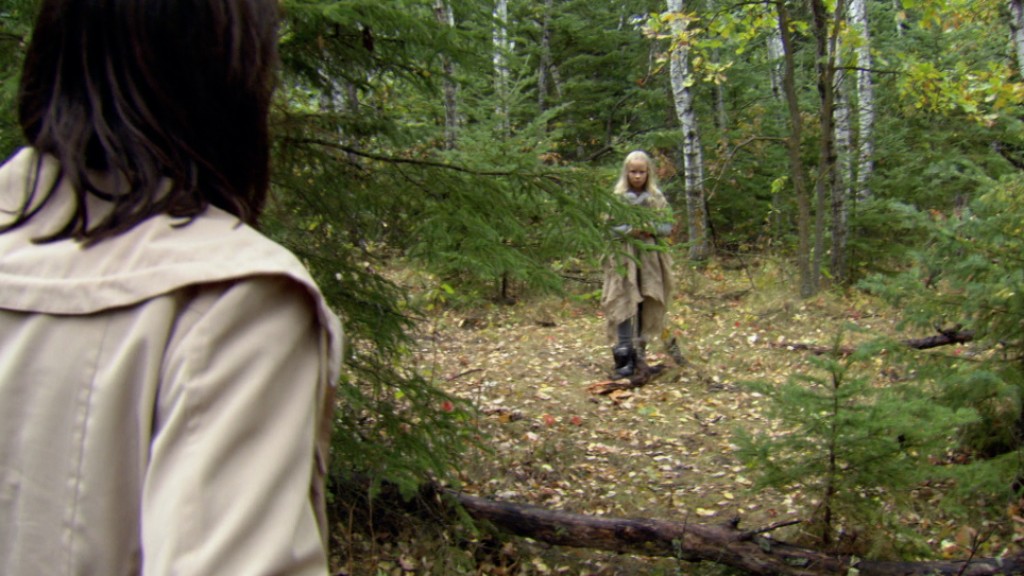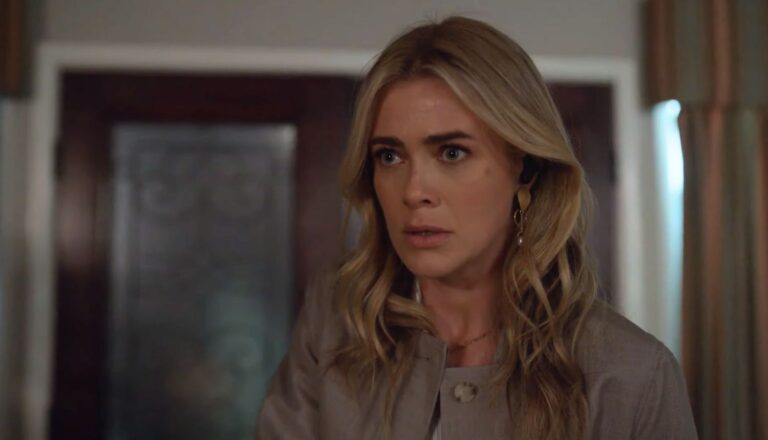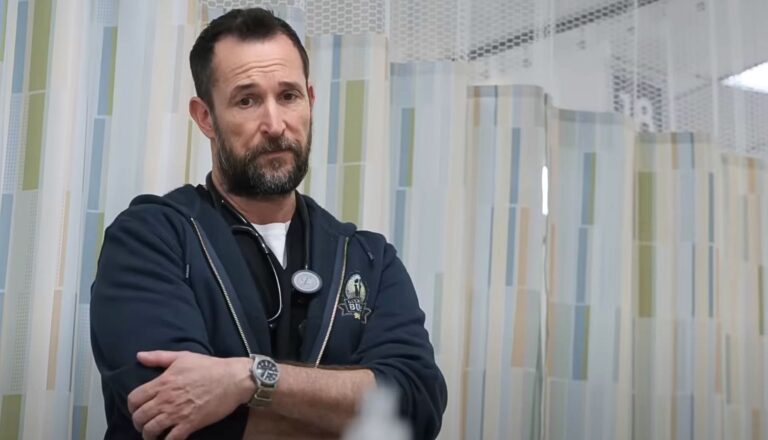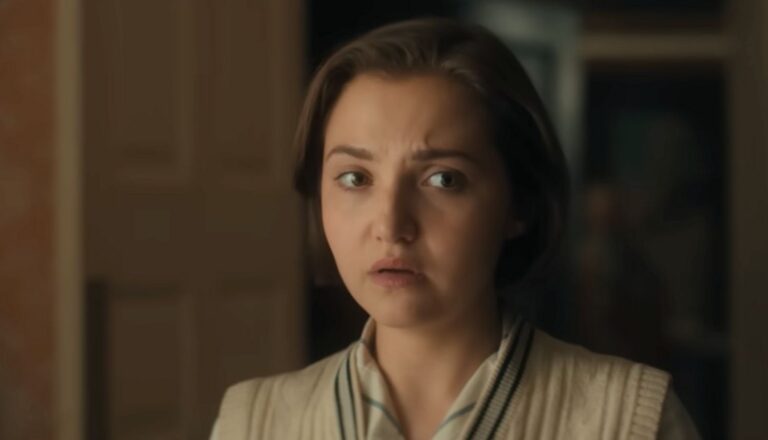
The Night Manager
Does it take a thief to catch a thief? Does it take lots of bad content to make a good TV show?

Survivor, the grandpappy of the stay-out-in-the-middle-of-nowhere-for-lots-of-money reality shows, has a simple, three-word motto: Outwit, outplay, outlast.
Siberia adds one more: outlive.
NBC’s clever and quite literally campy summer series is horror masquerading as a reality program. It’s a scripted drama, yet its actors are probably fed fewer lines than the guys on Duck Dynasty. It’s shaping up to be bloody and scary, yet it’s still slightly less disturbing than Here Comes Honey Boo Boo. It feels just like what you’d expect a Survivor rip-off to be … except that instead of getting voted off, most of the contestants may well get killed off.
That last detail alone makes it quickly obvious that this isn’t the reality show it pretends to be. Not even the most ratings-challenged of networks (yes, that’d be NBC) would quite yet resort to reality show murders just to goose profits.
The setup is simple: Sixteen everyday Joes and Janes are dropped off in the middle of the Tunguska wilderness to find a mysterious camp and rough it through the winter in hopes of winning $500,000. Reality show stereotypes are all well represented. There’s Sam, the weathered, older roughneck; Daniel, the surprisingly resourceful nerd; Esther, the beautiful-but-underhanded model; Neeko, the thoughtful leader; Johnny, the big jerk; and a host of other colorful caricatures. They’ve been tasked with getting along, more or less—helping one another to survive the elements even as they compete during whatever odd, telegenic challenges might come their way.
But there’s another participant, too: Something that roars a lot in the Siberian forest and would seem to have a taste for human flesh. Oh, and if the strange, backwoods critter wasn’t problematic enough, contestants have to worry about their own compatriots—a few of whom seem to harbor some heavy secrets. Last man standing wins the cash, after all.
So add to the reality/game trope a dog-eared Agatha Christie whodunit and every high-body count horror flick you’ve ever heard of. Queen’s “Another One Bites the Dust” might as well be the show’s theme song. It’s as silly and salacious as summertime television gets, really.
And yet for all of its problems, Siberia may hide another secret: It has some heft behind its horror.
Like most survival shows, this one can’t help but explore the human condition: What makes some people try to save others instead of protecting themselves? When we’re pushed, do we tend to rise to the occasion or run away? What do we do when we’re scared? Angry? Greedy? Sweaty and tired?
In one of Siberia’s early episodes, a contestant gets horrifically ill, and the rest of the contestants take her to the game’s drop point. Now, if you cross a line at that drop point, you’re out of the running and a helicopter will come to pick you up. So the contestants argue over what to do. Should they roll their potentially dying cast mate over the line and leave her there? Should they take her back to camp and hope she gets better? Or should someone carry her across the line, forfeiting his or her own chance to win?
“Is anyone willing to sacrifice themselves?” someone asks—a nod to what may well become one of the show’s recurring themes.
And then, of course, there’s the co-opting of the reality vibe itself—done so deftly that through the first 40 minutes of the pilot, viewers might not know the thing’s really a drama at all. Host Jonathon Buckley was a real reality show host (on the Lifetime network). The actors use their real names. And the show’s official website mixes and mingles the cast’s bios with fact and fiction. So in a way, Siberia could be a send-up, even a critique, of reality television itself. It dares ask whether Siberia is, really, any more fake than what we see on a dozen other shows labeled as “reality.”
“We always believe that producers won’t let any harm come to reality TV contestants,” writes Entertainment Weekly’s Melissa Maerz. “But we already know that’s not the case. These shows don’t get cancelled when marriages get strained to the point of divorce. Cameramen stand by and keep shooting while young people get punched in the face. As for leaving regular people in the Tunguskian woods to battle what appear to be bloodthirsty creatures, well, the networks’ lawyers might stop short of that. So maybe Siberia isn’t real, but the fact that its premise doesn’t feel totally ridiculous does make the story more compelling.”
But it doesn’t make it any less problematic either. Siberia has all the problems of a no-holds barred reality program and a soft-R horror flick rolled up in one: Blood, gore, profanity and sexual situations all trek into the wilderness for their requisite cameos.
“A Question of Reality”
Contestants grapple with Tommy’s unexpected death, but only one—George—opts to leave the show over the matter. “I may not get $500,000, but at least I’m not leaving in a body bag,” he says.
The rest find a key to a storage shed that has plenty of provisions, and Johnny and Neeko fight over whether to ration the food or not. Esther allows/encourages Victoria to eat a bowl full of poisonous mushrooms. Victoria gets sick and starts hallucinating. (Though she recovers, she decides to leave the game.) She tells Daniel that she had a vision of what was to come. “You guys are all gonna die,” she says.
Johnny chops off the tip of his finger with an ax, and we see him bleed profusely, eventually fainting from blood loss; the tip of his finger sticks to the blade. Daniel runs across a huge puddle of blood in the forest. Victoria is made to throw up, and we see her vomit on the cabin floor.
Miljan flirts with various contestants, obviously hoping to start a fire of his own. “I didn’t come here to get laid,” he says, “but if it happens along the way? Awesome.” Esther shacks up in the boys cabin. Lies and suspicions lurk, right along with the monster in the woods. We hear an s-word (in the background) along with other curses like “h‑‑‑” and “d‑‑n.” There are at least a dozen bleeped obscenities. God’s name is often misused.

Paul Asay has been part of the Plugged In staff since 2007, watching and reviewing roughly 15 quintillion movies and television shows. He’s written for a number of other publications, too, including Time, The Washington Post and Christianity Today. The author of several books, Paul loves to find spirituality in unexpected places, including popular entertainment, and he loves all things superhero. His vices include James Bond films, Mountain Dew and terrible B-grade movies. He’s married, has two children and a neurotic dog, runs marathons on occasion and hopes to someday own his own tuxedo. Feel free to follow him on Twitter @AsayPaul.

Does it take a thief to catch a thief? Does it take lots of bad content to make a good TV show?

The Hunting Party is far from the most gruesome drama on television, but its disturbingly inventive ways of killing may make viewers a bit queasy.

Max’s hospital drama ‘The Pitt’ strives to be medically accurate. While a noble goal, this show comes with a whole lot of content, too.

Netflix’s ‘Seven Dials’ (and the Agatha Christie book it’s based on) is filled with peril and suspicion. And more death is coming.